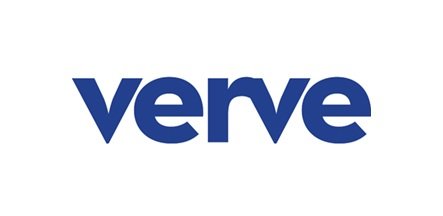Sook Jin Ong - Talk of the Town
/For Sook Jin Ong, the future is here.
By day, Sook Jin directs the University of Minnesota’s Future Services Institute, a department at the Humphrey School of Public Affairs that focuses on improving the delivery of human services: social work, population health, housing, food security, employment, public safety and the like, across public and nonprofit sectors. Her clients’ work affects how each of us, and our neighbors, survive or thrive across community in the places we call home.
Ever the optimist, Sook Jin asserts that improvements to human service delivery are not out of reach, nor do they arise from some research-y, best practice ideal farther afield.
Solutions are at hand, she offers, and reside within the very agencies and individuals who face societal challenges head on. “There is complexity that goes into causing the problems,” she says. “Similarly, there are lots of complexities that go into solving them.”
Blending Design Thinking and Art of Hosting participatory leadership techniques, Sook Jin and her team employ a simple practice – conversation – to unpack these complexities. With broad intentionality, she invites others to approach community conversations and solution-making together. “We ask, ‘who is at the table already?’ and ‘who is not at the table who needs to be?’”
In her facilitated conversations with placemakers and change agents, large group circles and small group discussions leverage both verbal and visual communication to help individuals learn from each other, take stock, and take risks. Employing table hosts, taking turns talking, drawing and doodling, creating a visual “harvest” of emerging ideas, and even acting out good ideas all are part of Sook Jin’s ‘meaningful conversation tool kit.’ “We create spaces where people are comfortable to talk, where they are free to dig deep, and be present.”
“Hosting” is important in Sook Jin’s approach: food is provided, lots of coffee, too, and a comfortable setting so participants’ needs are met and they are free to participate fully. Variety and flexibility are keys to a good conversation. “There are as many ways to solve challenges as there are personalities,” Sook Jin asserts. “We talk to each other,” Sook Jin continues, “to understand context and to learn.”
As facilitator, Sook Jin asks the questions. “‘What matters here?’ ‘What does a meaningful conversation around this topic look like?’ and ‘What will it take to move us [this community, this agency] toward action?’”
Time, too, is essential to build trust. “Staying on script is less important than taking time to process our collective experiences, to tell stories of pain or frustrations, and to trace the fragments of a larger or deeper story that hasn’t been expressed.”
The societal challenges public and nonprofit agencies tackle are substantial: poverty, decaying infrastructure, nutrition and food insecurity, public health, violence, environmental degradation, underemployment, inequality, trauma. The gaps in resources can feel insurmountable; the energy required on the front lines of social service providers is significant.
“The task can be overwhelming,” Sook Jin says. “Especially in the public or nonprofit sector, where everyone is operating in the mode of scarcity, people feel pressed for time, and they think ‘emotions aren’t allowed.’”
Emotions often run high when front line employees and citizens are close to meaningful change. The compendium of feelings can be hard to reckon with, if participants think showing emotion or vulnerability is akin to showing weakness, or if work culture equates “busyness,” or productivity with progress.
Institutional inertia can keep process – and outcomes – in same old/same old mode. Sook Jin is undeterred. “We know that individual stories are part of an overall institutional story. When a non-profit or public agency is feeling stuck, needing to move forward, we invite everyone - staff, board members, stakeholders, funders, clients - to map their journey, define what is meaningful about their work, consider community needs, and articulate what comes next.”
The act of teaching public service agents, front line employees and decision makers to practice good conversation builds connections across boundaries, and support civility and mutual respect. Slowing the conversational process to make meaning and take stock of emerging trends and outlying ideas are equally important steps in fully understanding the work and challenges. Good conversations sparks sustainable improvements for clients and the common good.
The work is hard, and sound planning and patient facilitation is required. “There are no shortcuts,” Sook Jin says. “Even in moments of resistance. Even when we think, ‘That sucked! That bombed!’ We will be OK because we will see each other tomorrow.”
For more information:
https://www.hhh.umn.edu/directory/sook-jin-ong
Future Services Institute: http://futureservicesinstitute.umn.edu/
Art of Hosting: http://www.artofhosting.org/
Photo credits: Tracy Nordstrom, Art of Hosting website











